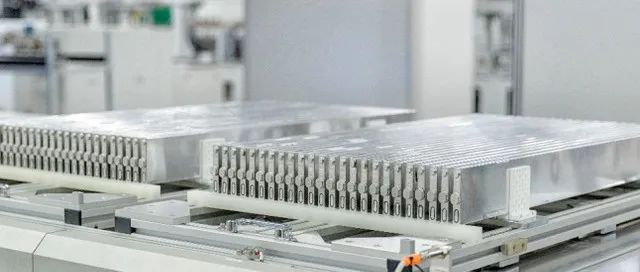Author: Mr. Hippo
BYD’s monthly sales have increased again.
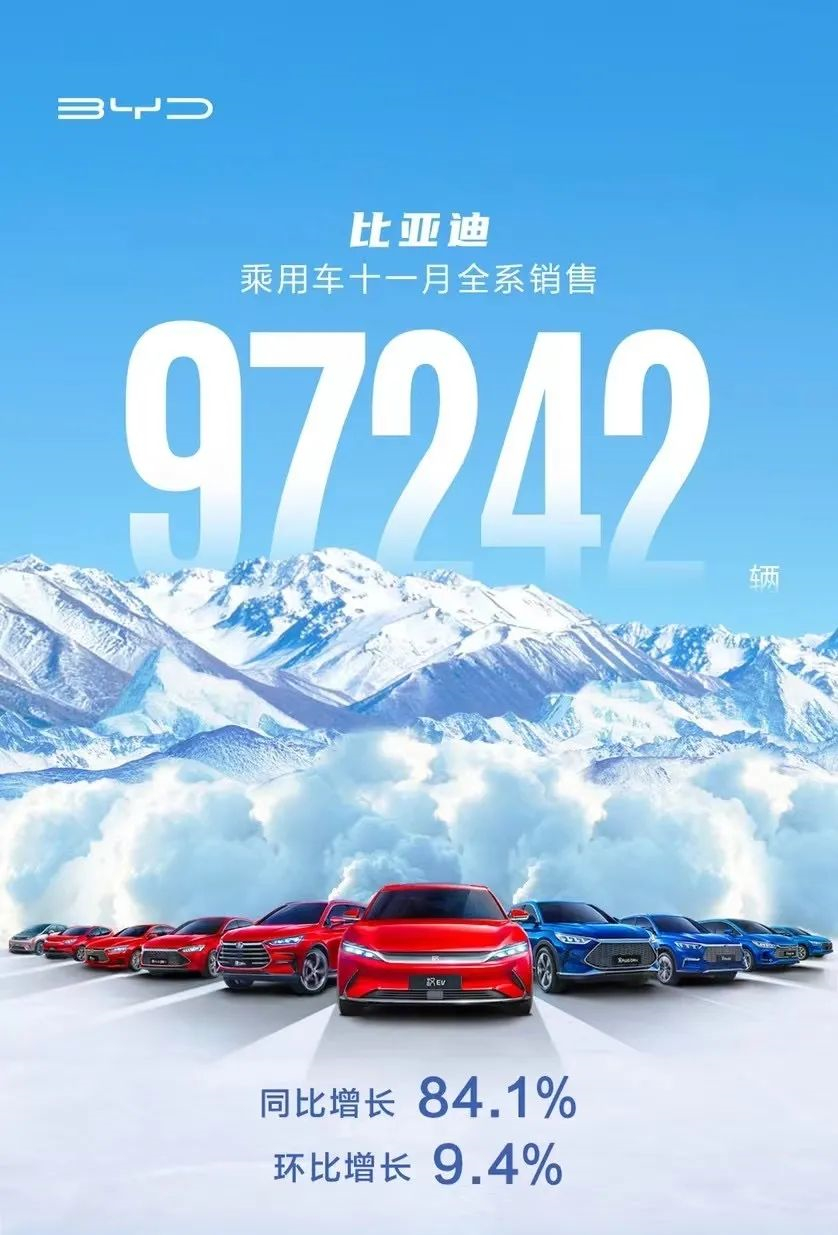
In November, BYD’s monthly sales were 97,242 vehicles, an increase of 9.4% month-on-month and 84.1% year-on-year. It is only a little over 2,000 vehicles away from reaching the monthly sales of 100,000. Among the more than 90,000 sales, new energy vehicles accounted for the vast majority, with sales of 46,139 pure electric vehicles and 43,984 plug-in hybrid vehicles, totaling 90,121 units.
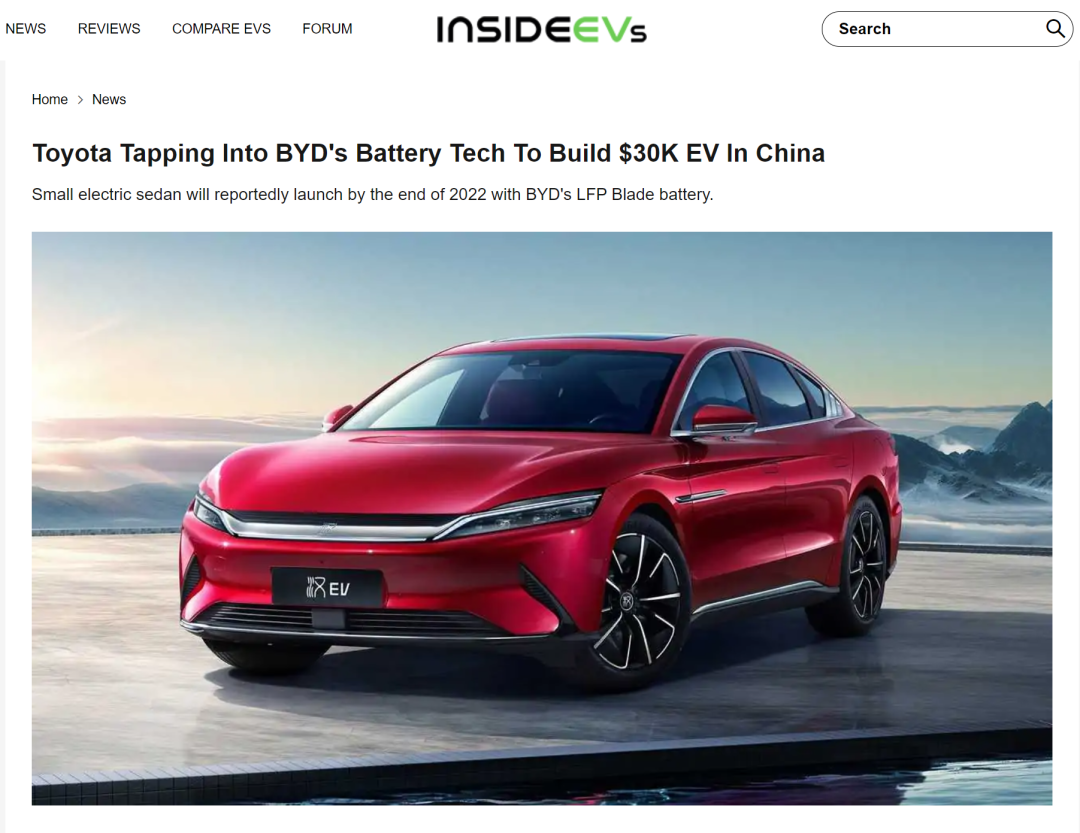
Of course, in addition to the good news of sales, there is another good news for BYD these days, which is that Toyota’s new car may use BYD’s blade batteries. According to foreign media reports, Toyota will launch a small electric car in China next year, with the battery and critical engineering technology from BYD. This car will be the second model of Toyota’s bZ series designed for the Chinese market, and is expected to be priced at around RMB 190,000. It will debut at the Beijing Auto Show in April next year.
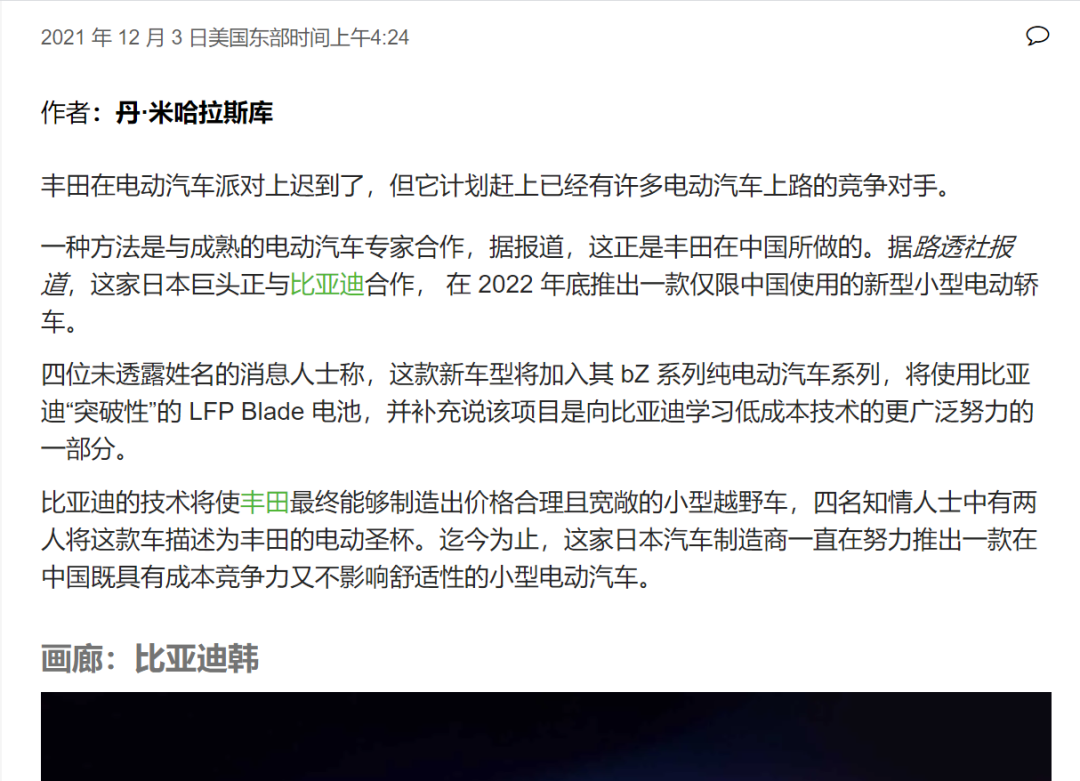
Regarding this matter, BYD’s relevant personnel also responded, saying that the cooperation between the two parties is in the research and development confidentiality stage.
This response does not directly deny the existence of this possibility, but seems to have verified the statement.
Of course, the cooperation between Toyota and BYD to launch new vehicles is actually a matter of course, because the cooperation between these two companies began very early. Let’s take a look at the timeline.
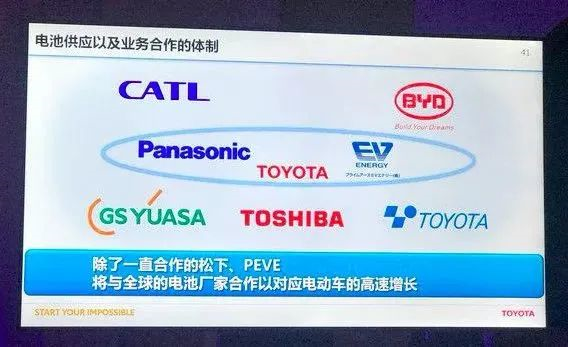
In June 2019, at the electricization related theme meeting held by Toyota in Tokyo, Japan, it announced that in addition to the original cooperation with Panasonic and PEVE, it will cooperate with global battery manufacturers to respond to the high-speed growth of electric vehicles. Domestic companies such as BYD and CATL are also within the scope of cooperation. At that time, many people speculated that Toyota’s new electric car launched in China will use batteries from these two companies.
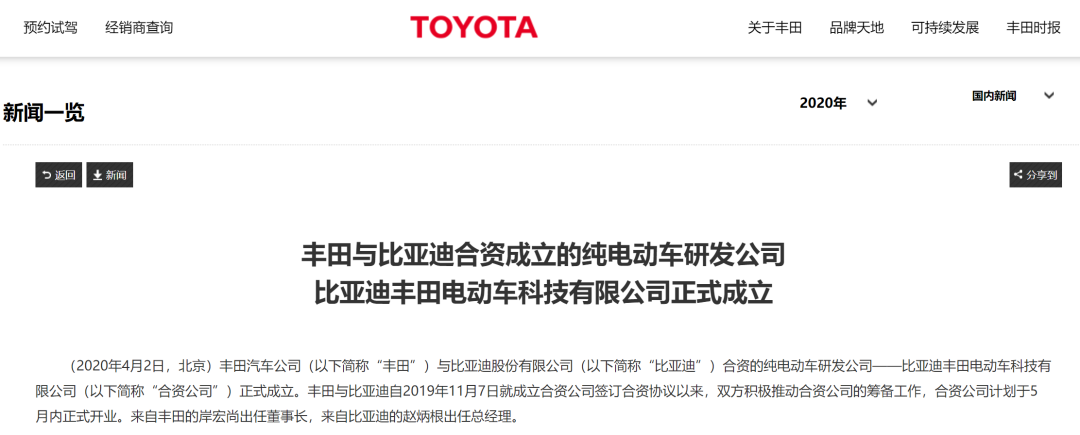 Time continues to move forward, and on November 7, 2019, Toyota and BYD signed a joint venture agreement, to continuously push forward the preparation work of the joint venture company. In April 2020, Toyota and BYD joint ventured to form a new pure electric vehicle research and development company, and the new company is named BYD Toyota EV Technology Co., Ltd., with Toyota and BYD each holding 50% of the shares.
Time continues to move forward, and on November 7, 2019, Toyota and BYD signed a joint venture agreement, to continuously push forward the preparation work of the joint venture company. In April 2020, Toyota and BYD joint ventured to form a new pure electric vehicle research and development company, and the new company is named BYD Toyota EV Technology Co., Ltd., with Toyota and BYD each holding 50% of the shares.
The new company’s business scope is the design and development of pure electric vehicles and their derivative vehicles, as well as the import and export, sales, after-sales service, and related consulting services of parts, components, and assemblies for pure electric vehicles and their derivative vehicles.
The Chairman of the new company is Akio Kondo from Toyota, and the General Manager is Zhao Binggen from BYD. In addition, the main personnel of the new company are mostly executives from Toyota or BYD. For example, Zhou Yalin, who serves as the legal person of BYD Auto Finance Co., Ltd., and Ueda Tatsuro, who serves as the legal person of Toyota Motor (China) Investment Co., Ltd.
At the time, the Chairman of the new company stated that after the establishment of the joint venture company, engineers from Toyota and BYD who possess their respective technical strengths would learn from each other and jointly develop performance excellent pure electric vehicles loved by Chinese consumers. And isn’t BYD’s strength the electric vehicle technology that has already been verified?
Furthermore, a certain car influencer revealed that BYD is working with Toyota to build cars, and core parts such as electric control, batteries, and motors are provided by BYD, while Toyota is responsible for acceptance work. At that time, the new car was already in the road test phase. According to the schedule, the official debut will be at the Beijing Auto Show next year, followed by the usual process of finishing work and pushing to the market.The following is an English Markdown translation of the Chinese text below, while preserving the HTML tags within Markdown. Only corrections and improvements to the translation will be made:
Of course, there are many potential car owners who have already ordered BYD’s new vehicles but have been waiting for them for a long time. They may wonder, now that blade battery supply is already insufficient to meet demand, if they will have to wait even longer to get their vehicles once BYD starts sourcing from Toyota.
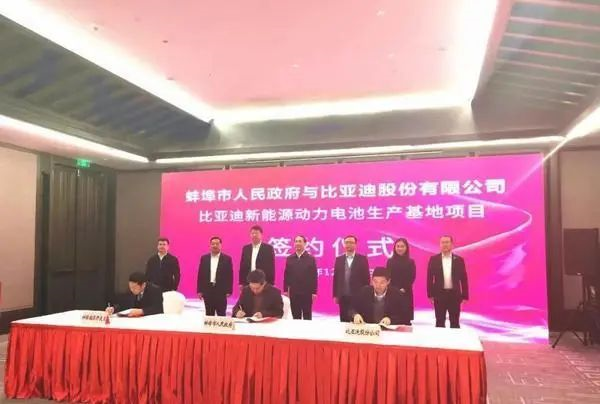
The solution is simple: expanding battery production capacity. At the end of 2020, the government of Bengbu City signed an agreement with BYD to establish a battery production base in Hefei. The contracted project is BYD’s battery production base at the Lingang Industrial Park of the Economic Development Zone. The project requires a total investment of 6 billion yuan and will manufacture products such as new energy battery cells, modules, and related supporting industries. The investment for the first phase of the project is approximately 3 billion yuan and will produce 10 GWh of power batteries per year.
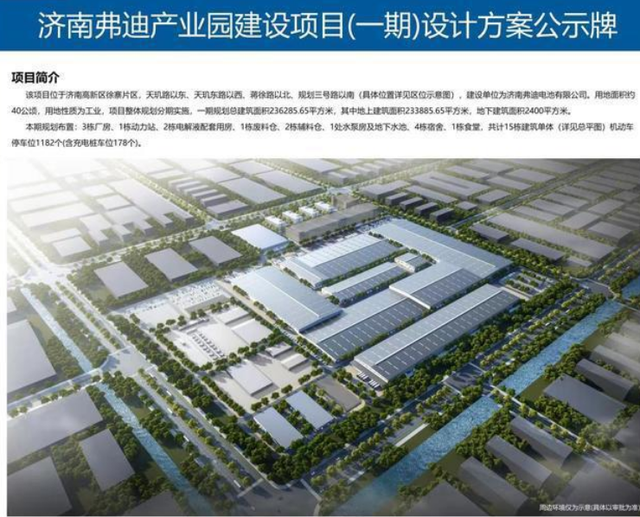
Furthermore, in October 2021, the Jinan Natural Resources and Planning Bureau announced the design plans for the construction of the Jinan Fudi Industrial Park Phase I project. Jinan Fudi Battery Co., Ltd. is the construction unit. According to the planned layout for the park, the project is located in the Xuzhai district of the Jinan high-tech zone, covering an area of approximately 40 hectares with land use rights for industrial purposes only. The entirety of the project is organized and implemented in phases. According to the cooperation agreement between the Jinan government and BYD, the new project will have a power battery capacity of 30 GWh, constructed in two phases with 15 GWh capacity in the first phase.

Prior to this, BYD already had eight battery production bases located in Baoan, Huizhou Kengzi, Xi’an High-tech, Xining in Qinghai, Guiyang in Guizhou and Bishan in Chongqing, Ningxiang in Changsha, and Bengbu in Anhui. With the completion of the Jinan project, BYD will have nine large battery production bases. At the end of last year, BYD’s battery production capacity reached 65 GWh, and it is expected to reach 91 GWh by the end of this year with the planned and under-construction battery production capacity enough for BYD’s self-use and external supply needs.
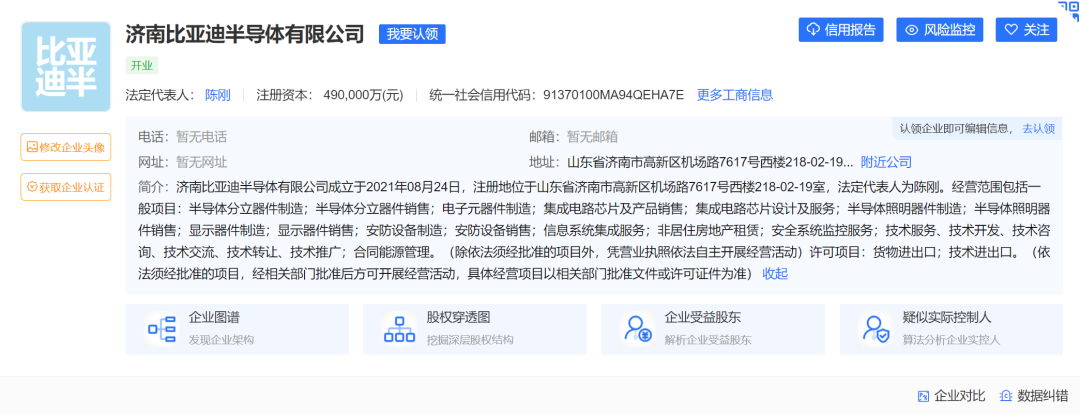
In addition, BYD has also established Jinan BYD Semiconductor Co., Ltd with registered capital of RMB 4.9 billion, in which BYD Semiconductor Co., Ltd owns 77.75% of shares. Furthermore, it is also possible that BYD would directly acquire a wafer fabrication plant through procurement, and the potential acquisition target is Jinan Fornet Semiconductor.
If everything goes as planned, not only will the battery shortage be resolved, but chip production capacity will not be an obstacle to BYD’s development.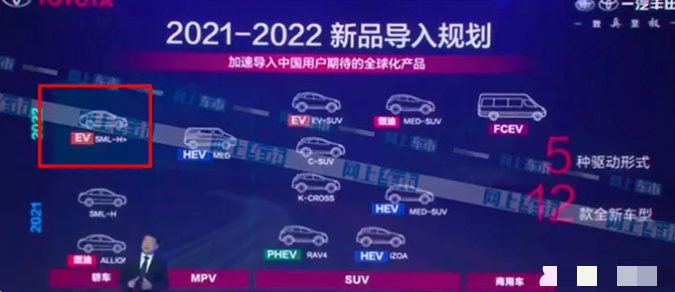
Finally, let’s come back to the new car jointly created by Toyota and BYD. In fact, we can see some clues from the new product import plan of Toyota before. The plan shows that in 2022, Toyota will import a pure electric sedan model, with a code name of EV SML-H+.
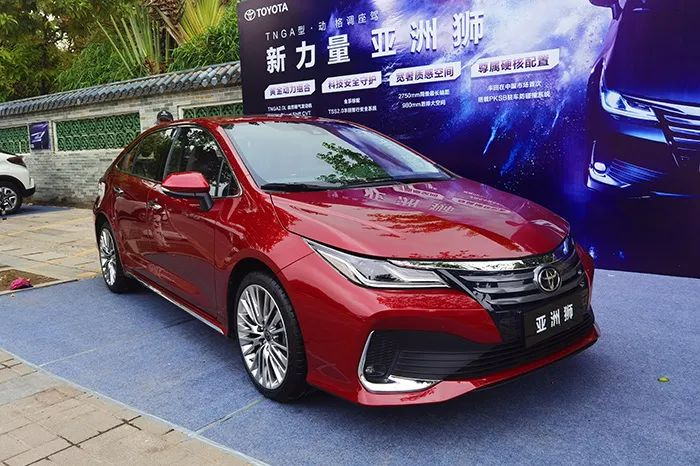
SML-H is one of the classification of car models in Japan, corresponding to the A-class cars commonly used in Germany. With the addition of the “+” sign, it can be understood as an A+ class car model. In China, SML-H+ is the code name of Asia Lion previously, so the new car may have a strong relationship with Asia Lion.
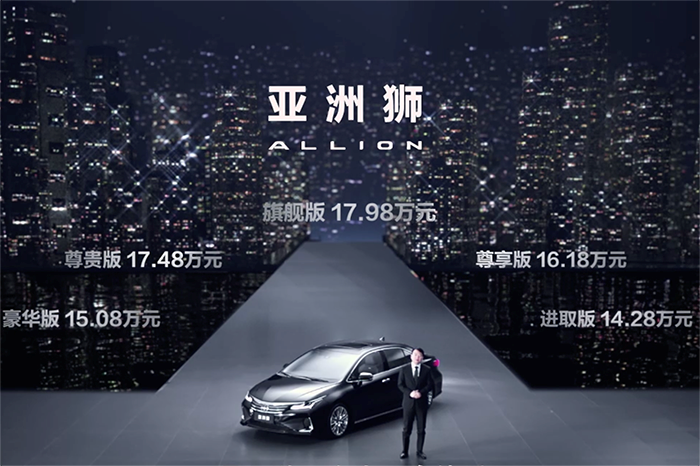
Asia Lion is originally a car model specially built for the domestic market, and it won’t be too difficult to electrify it. Referring to the current guide price of 142,800 to 179,800 yuan for Asia Lion, it is quite normal for the price to rise to around 190,000 after electrification. This is also similar to the rumored price by foreign media. The original foreign media report was 30,000 US dollars, which is equivalent to RMB 191,000 according to the current exchange rate.
Would you buy this new Toyota car?
This article is a translation by ChatGPT of a Chinese report from 42HOW. If you have any questions about it, please email bd@42how.com.
